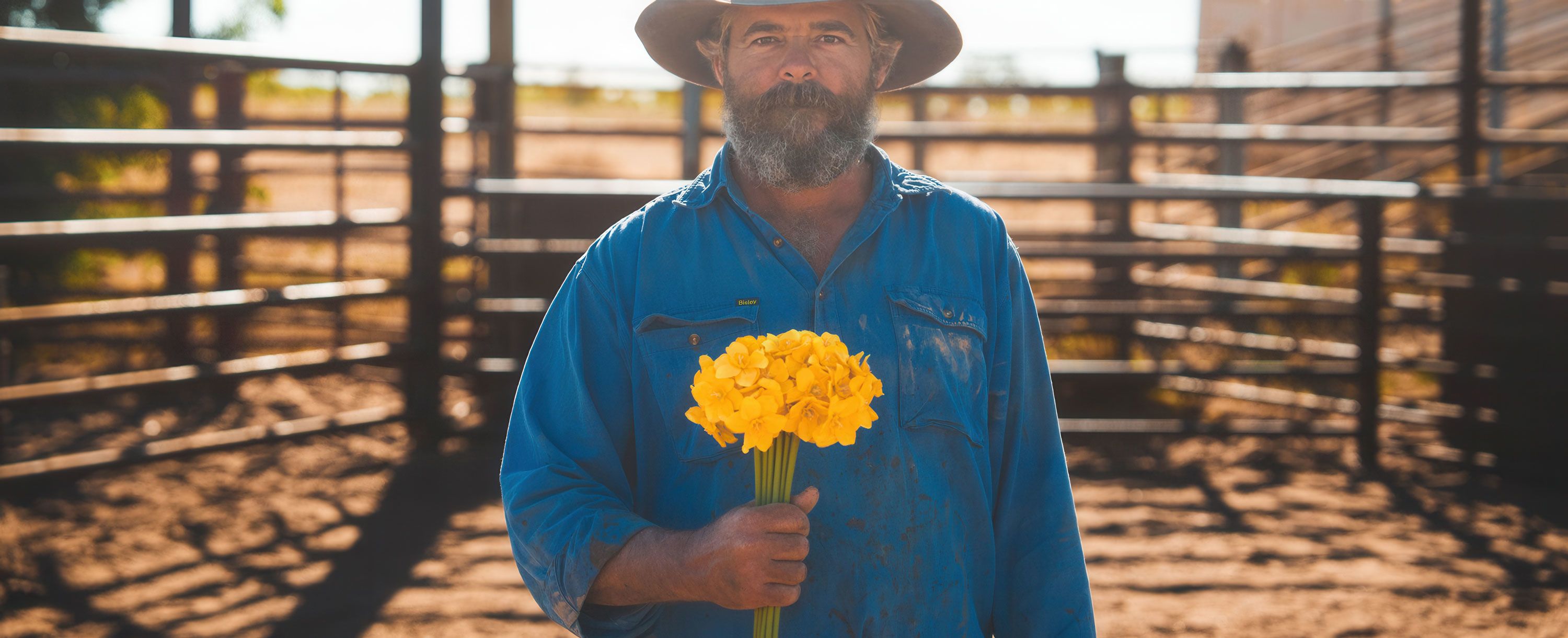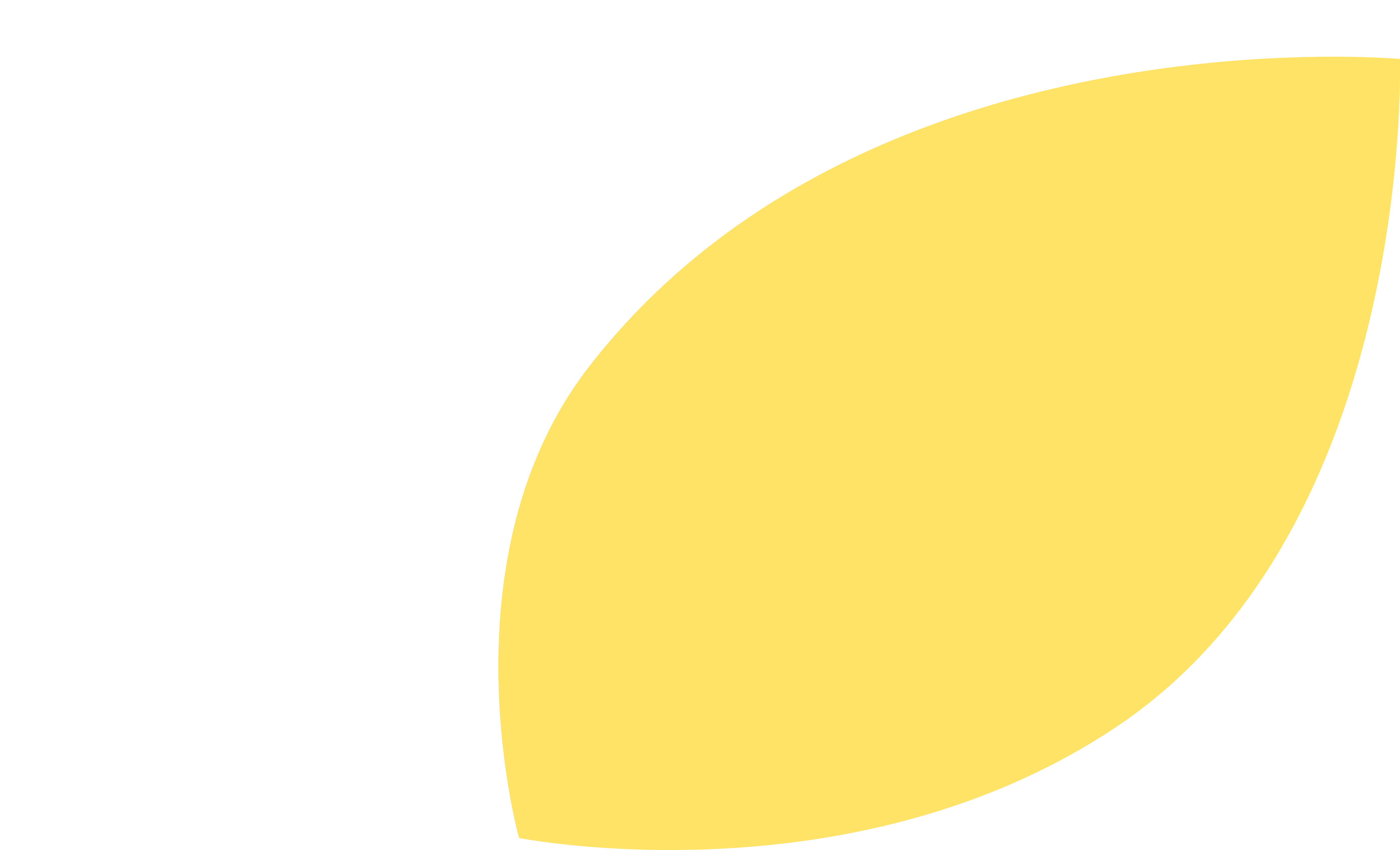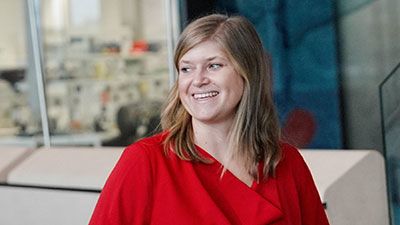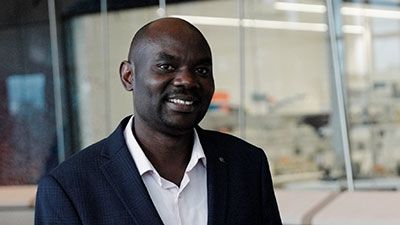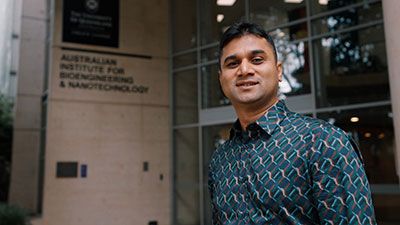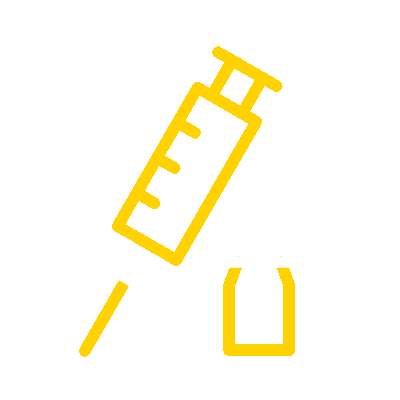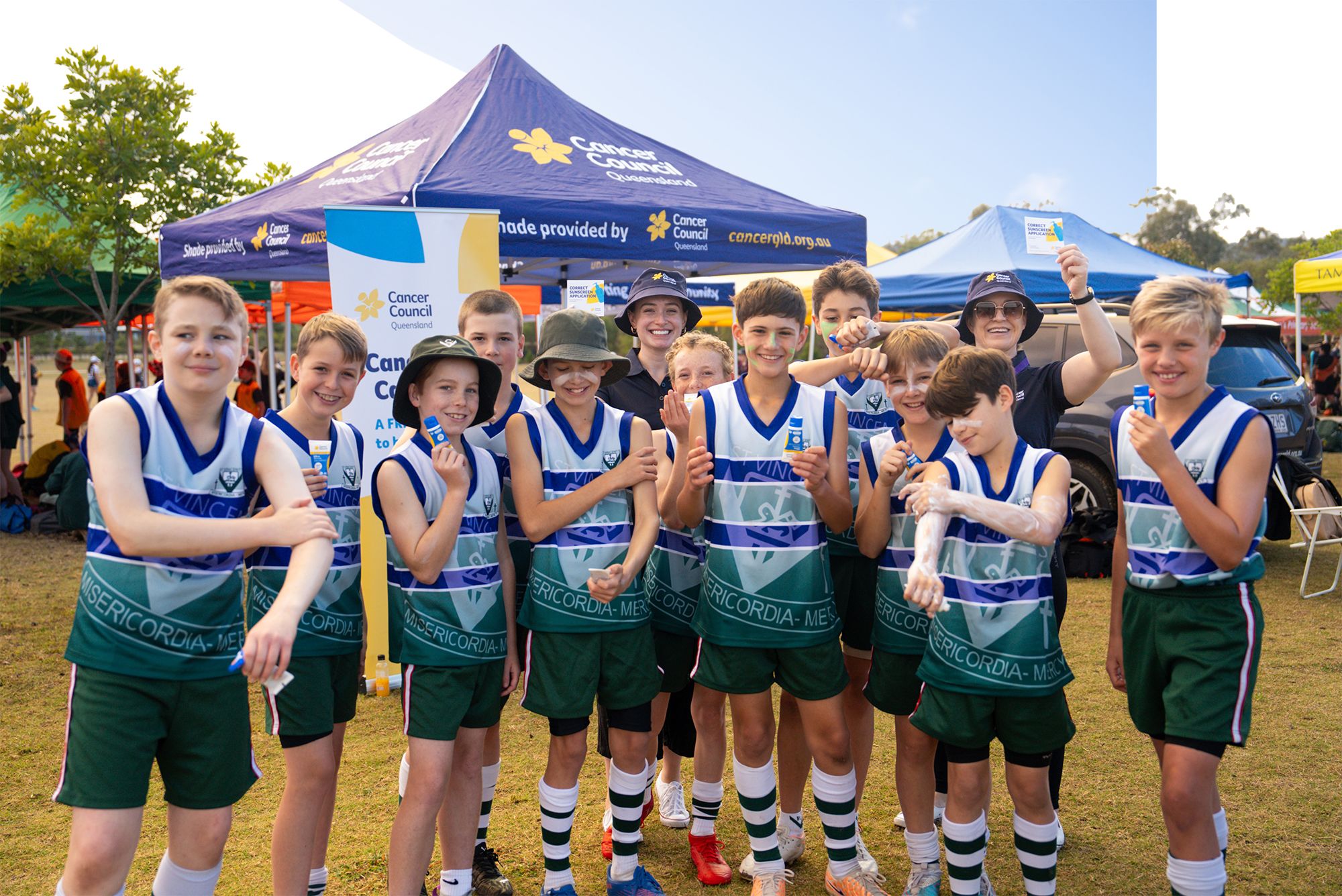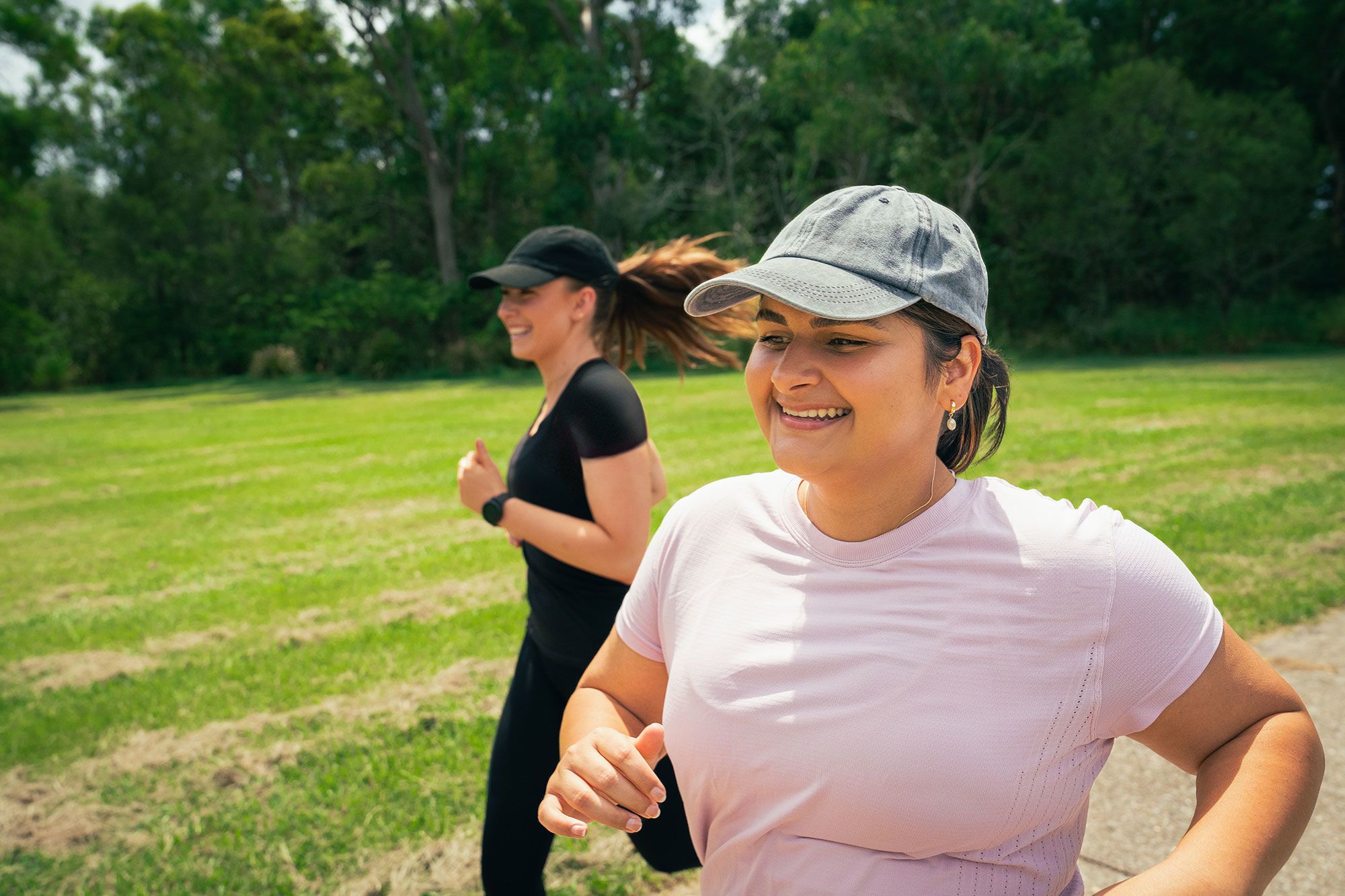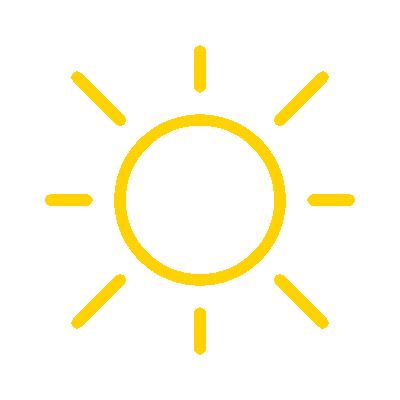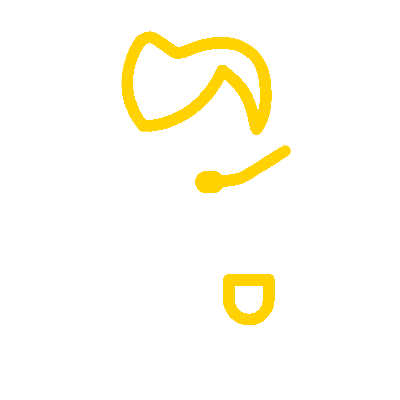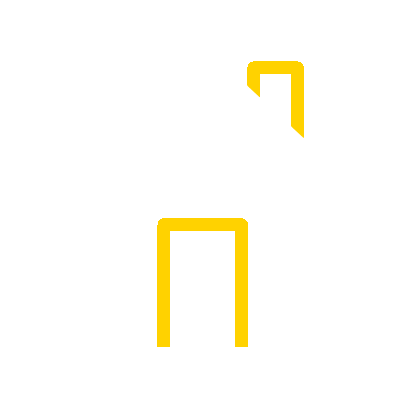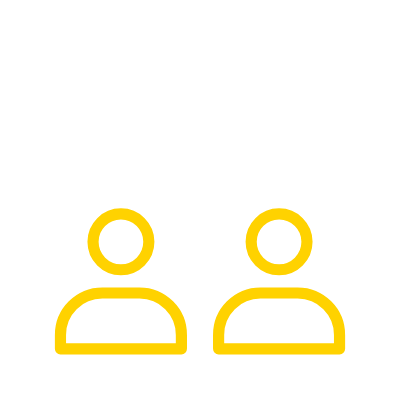From coast to country.
Here for all Queenslanders.
Impact Report FY23-24
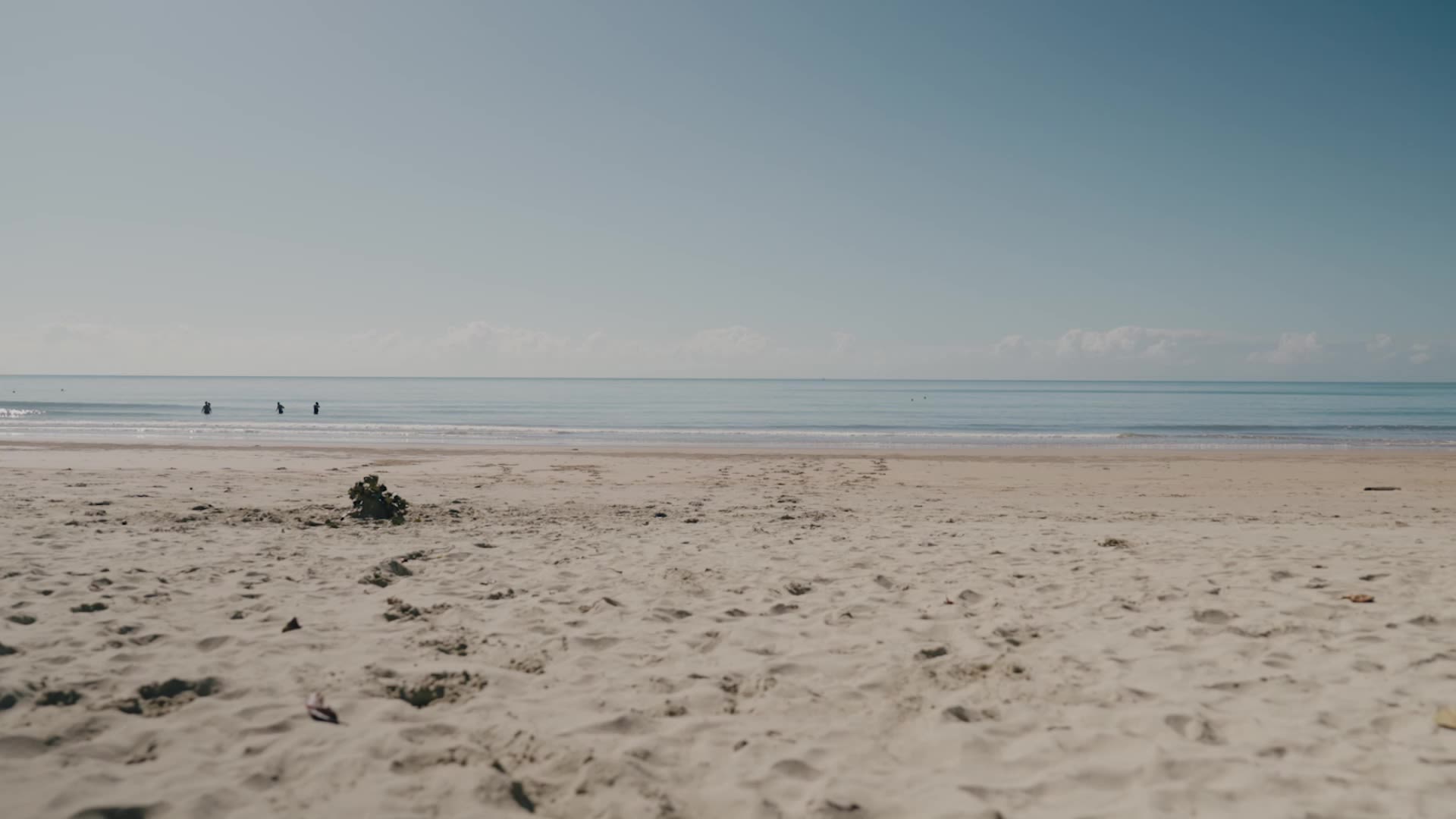
Navigating cancer together
Together, we can prevent cancers, find more effective treatments, and give the highest level of support to all Queenslanders impacted by cancer.
Our research shows by 2030, more than 350,000 Queenslanders will be living with cancer. Now, more than ever, we need your help to make sure no one faces cancer alone.
Our mission is to lead Queenslanders in a partnership against cancer. The word partnership is important, because we recognise we can't do this alone. We have over 60 years of experience in conducting high quality research into all cancers for all Queenslanders. We translate this research into quality care and information services to patients and their families throughout their cancer diagnosis.
“Through strength and unity, we are making an incredible difference in the lives of those impacted by cancer.”
Andrew Donne, CEO, Cancer Council Queensland
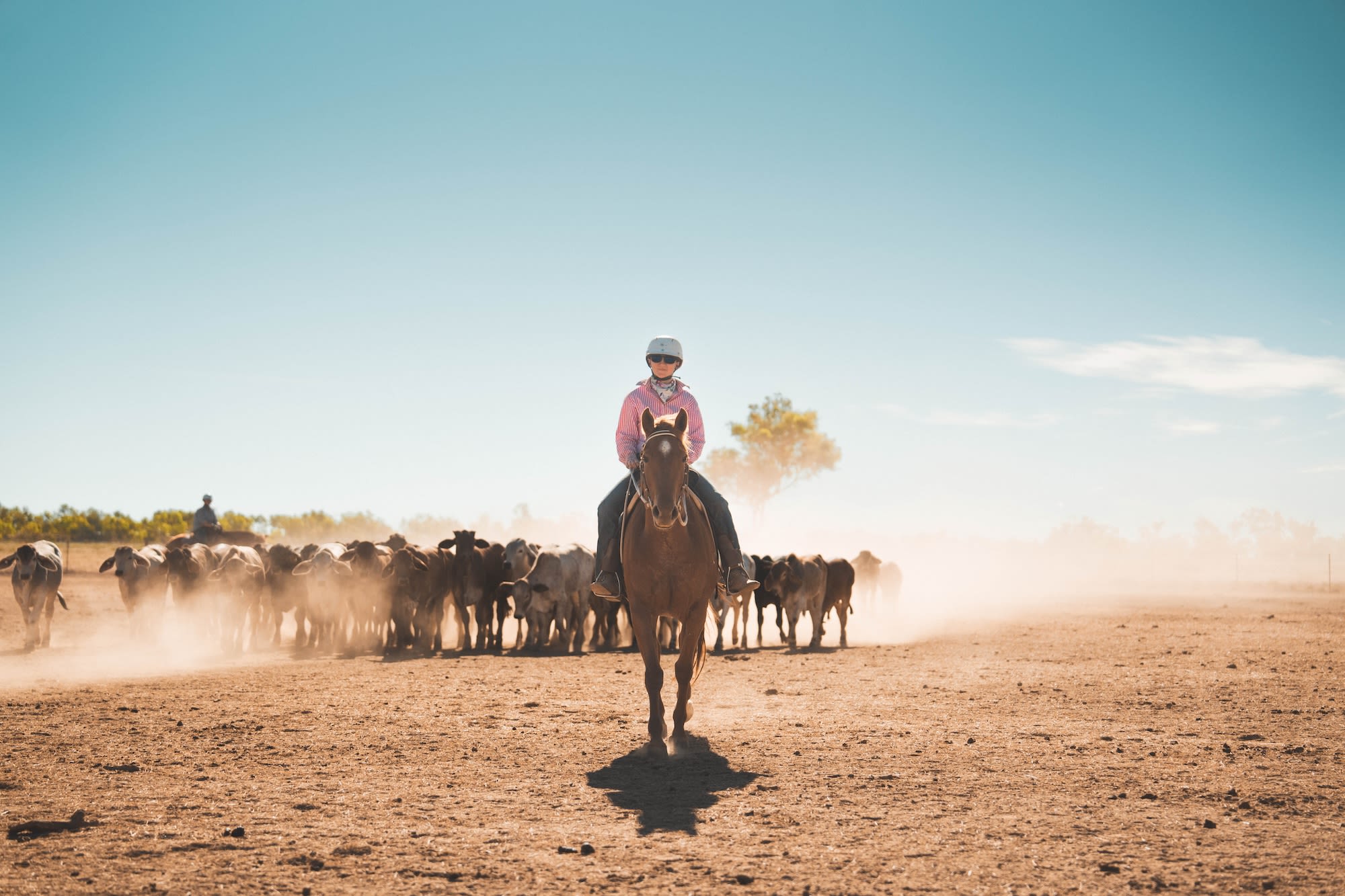

Our commitment to rural and regional Queensland
Our research shows Queenslanders in regional and remote areas are up to 44% more likely to die from cancer within 5 years of diagnosis, compared to those in metro areas.
We are actively working to enhance our outreach initiatives, ensuring rural and regional Queenslanders are well-informed about the resources available to them. Through partnerships with local health services and community organisations, we aim to deliver tailored support that meets the specific needs of these communities.
Our research and prevention programs focus on informing and raising awareness, providing educational resources, and facilitating access to critical services, including early detection and treatment options.
When Mount Isa local Graeme was diagnosed with prostate cancer, he was forced to travel thousands of kilometers for treatment.
We remain steadfast in our commitment to addressing the inequities faced by rural and regional Queenslanders. We are dedicated to breaking down the barriers that contribute to poorer health outcomes and ensuring no one faces cancer alone.
Our priorities
Our strategy identifies three priorities: Research, Prevention and Support.
These key priorities deliver evidence-based programs, which will reduce cancer risk and improve the experience and quality of life for people living with cancer.
Research
Our Viertel Cancer Research Centre conduct research in 5 key priority areas:
- Cancer prevention & screening
- Meeting the needs of cancer survivors
- Achieving equity in cancer outcomes
- Informing & engaging the community
- Improving the lives of children with cancer
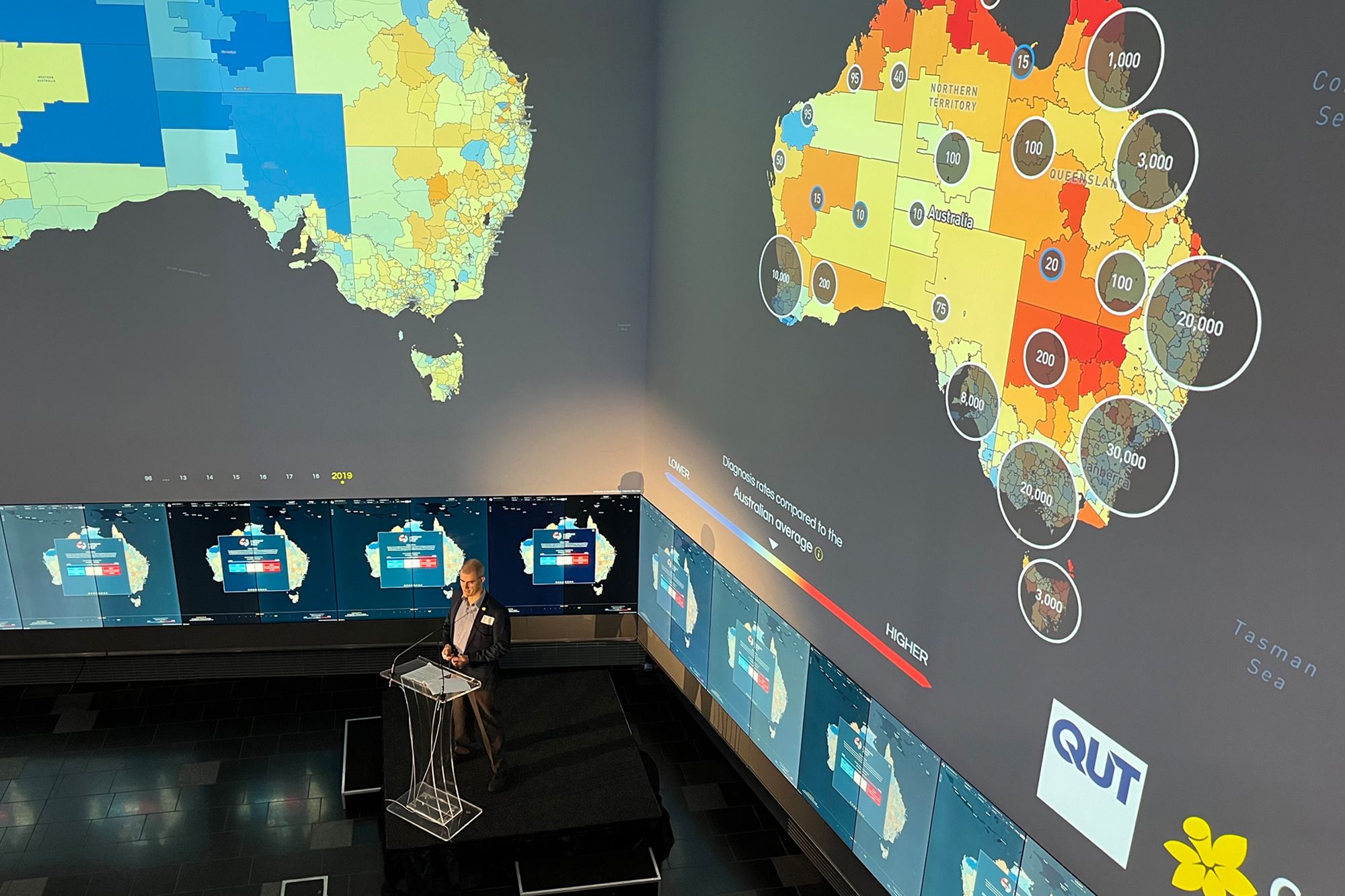
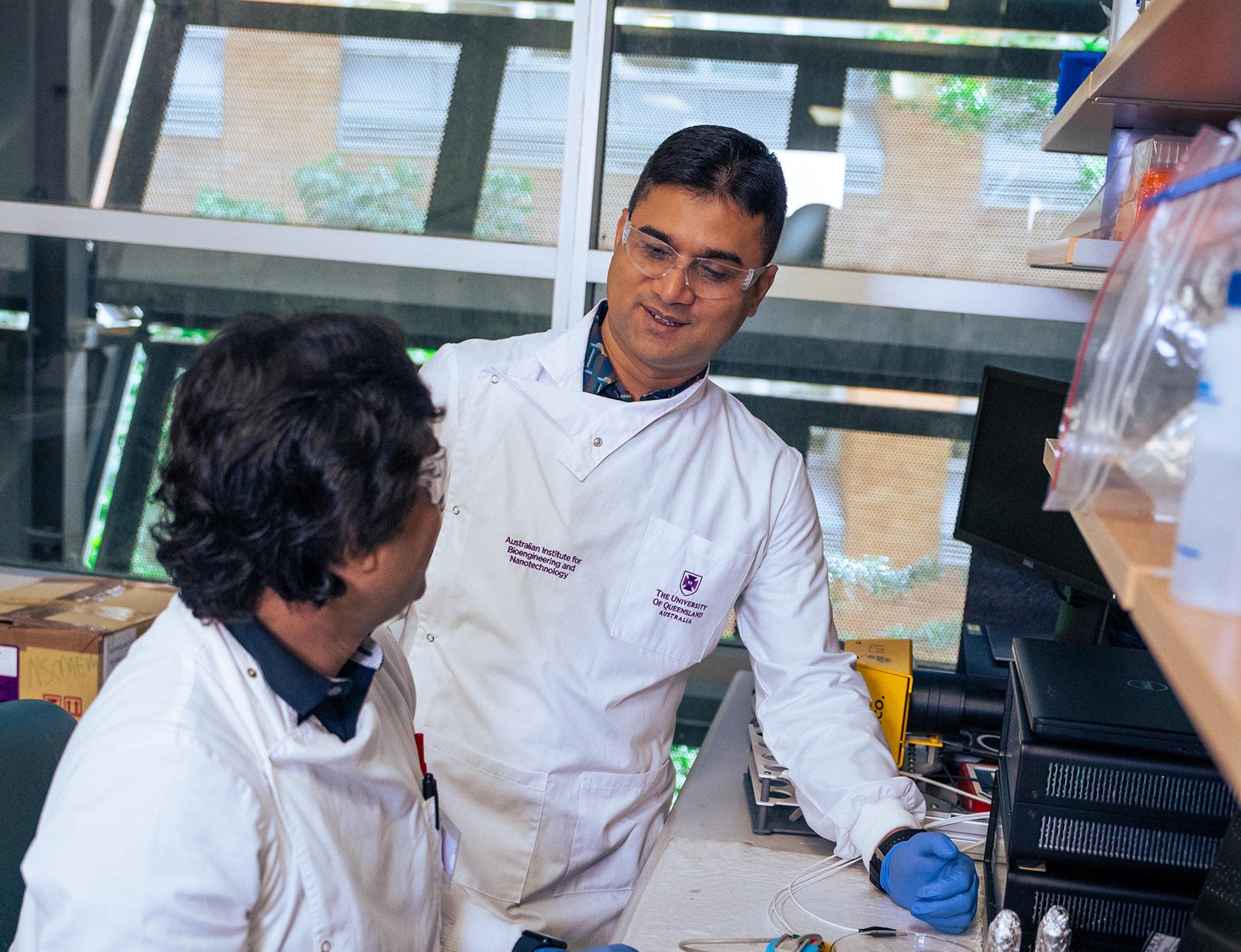
Launching the Australian Cancer Atlas 2.0
The Australian Cancer Atlas, launched in 2018, offers a detailed look at how cancer rates and survival vary across different regions of Australia. It has been a valuable tool for policymakers, advocates, and communities to understand and address disparities in cancer outcomes. The Atlas has already informed government inquiries, advocacy campaigns, and academic programs.
Due to its growing impact, a new version, the Australian Cancer Atlas 2.0, was developed in partnership with Queensland University of Technology. This updated tool uses cutting-edge mapping technology to provide even clearer insights into cancer trends across Australia. It incorporates new statistical methods and features data from cancer registries, hospitals, Medicare, and health surveys.
By highlighting differences in cancer risks, screening, and treatment based on location, the Atlas helps identify why certain areas are more affected by cancer. This information is crucial for designing better prevention and treatment strategies, tailored to specific regions.
The Australian Cancer Atlas 2.0 continues to be an essential resource, helping governments, communities, and healthcare providers visualise cancer disparities and take informed steps toward reducing inequities in cancer outcomes.
Next Generation Cancer Research Fellowships
Funding local research to make global breakthroughs.
Each fellowship is valued at $150,000 per year for 5 years, based on a full-time workload.
Dr Jasmin Straube, QIMR Berghofer
Identifying vulnerabilities in leukemic stem cells with poor prognostic mutations to improve myeloid blood cancer patient outcomes.
Dr Mathias Seviiri, QIMR Berghofer
Understanding the genetic basis of treatment response, and risk prediction of skin cancer.
Dr Mostafa Kamal Masud
The University of Queensland
A nanoarchitectured platform for early diagnosis and monitoring of ovarian cancer.
Funding local research on a global scale
Research breakthroughs take years, and sadly some of Queensland’s brightest early career researchers are forced to abandon their research due to lack of funding.
We are investing in the future of cancer research through the new Next Generation Cancer Research Fellowships Scheme.
This scheme supports early career cancer researchers and promotes the growth, stability, and diversity of the cancer research workforce in Queensland.
Research Highlights
This year we have continued our ongoing commitment to advancing cancer research.
We invested $11.8 million to conduct and support cancer research to improve cancer prevention, early detection, treatment and survival.
200
Cancer clinical trials in 21 cancer treatment centers in Queensland.
$1,418,000
Clinical trial funding.
$1,050,000
In accelerating Collaborative Cancer Research Grants.
10
Supporting 10 postgraduate students completing their honors, Masters, and PhD theses.
13
Scientific articles published on our research findings.
77%
In top-ranked journals.
Prevent
We invested $403,000 dollars to engage the community to reduce cancer risk, prevent cancers and improve early detection for all Queenslanders.
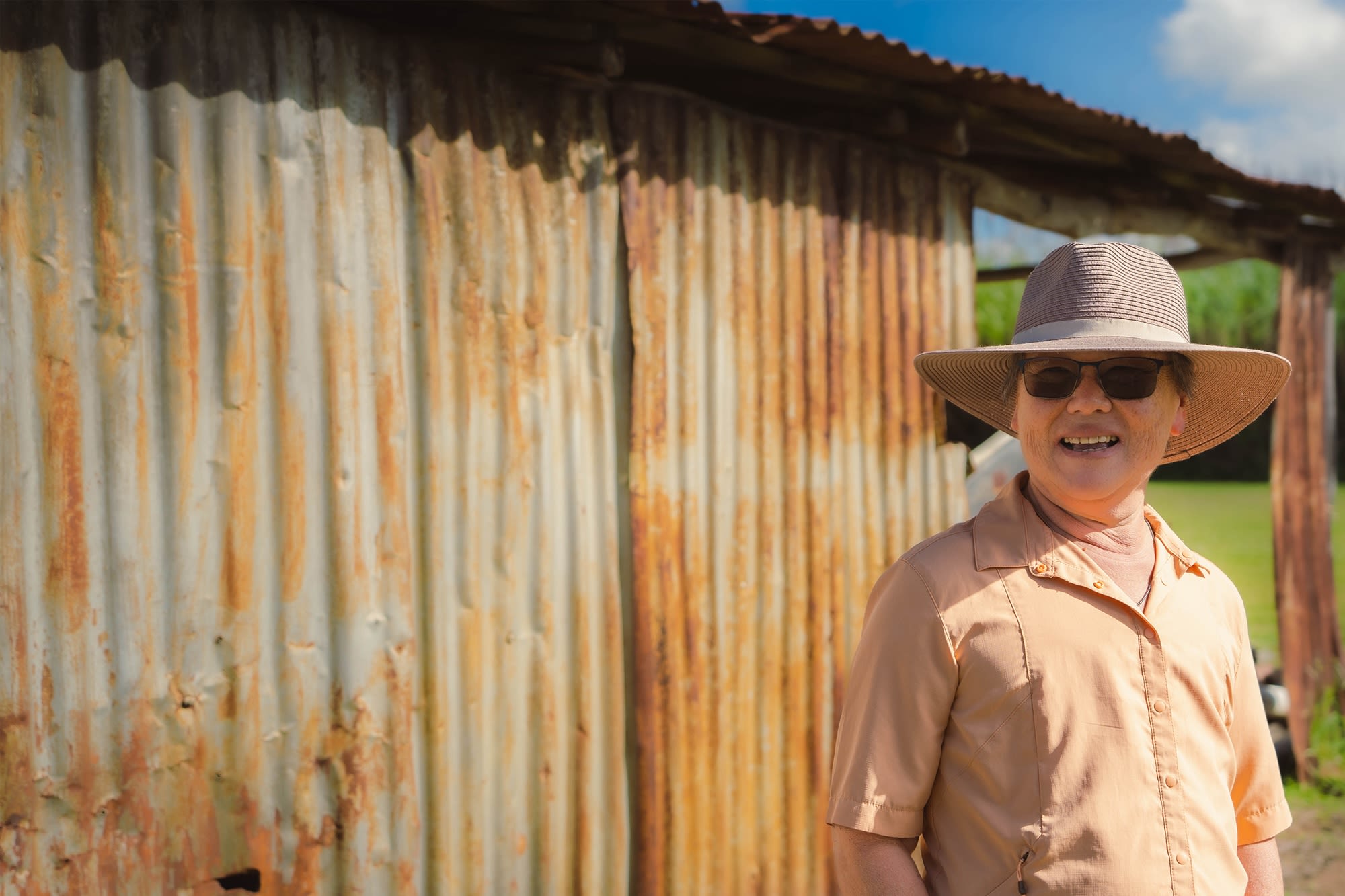
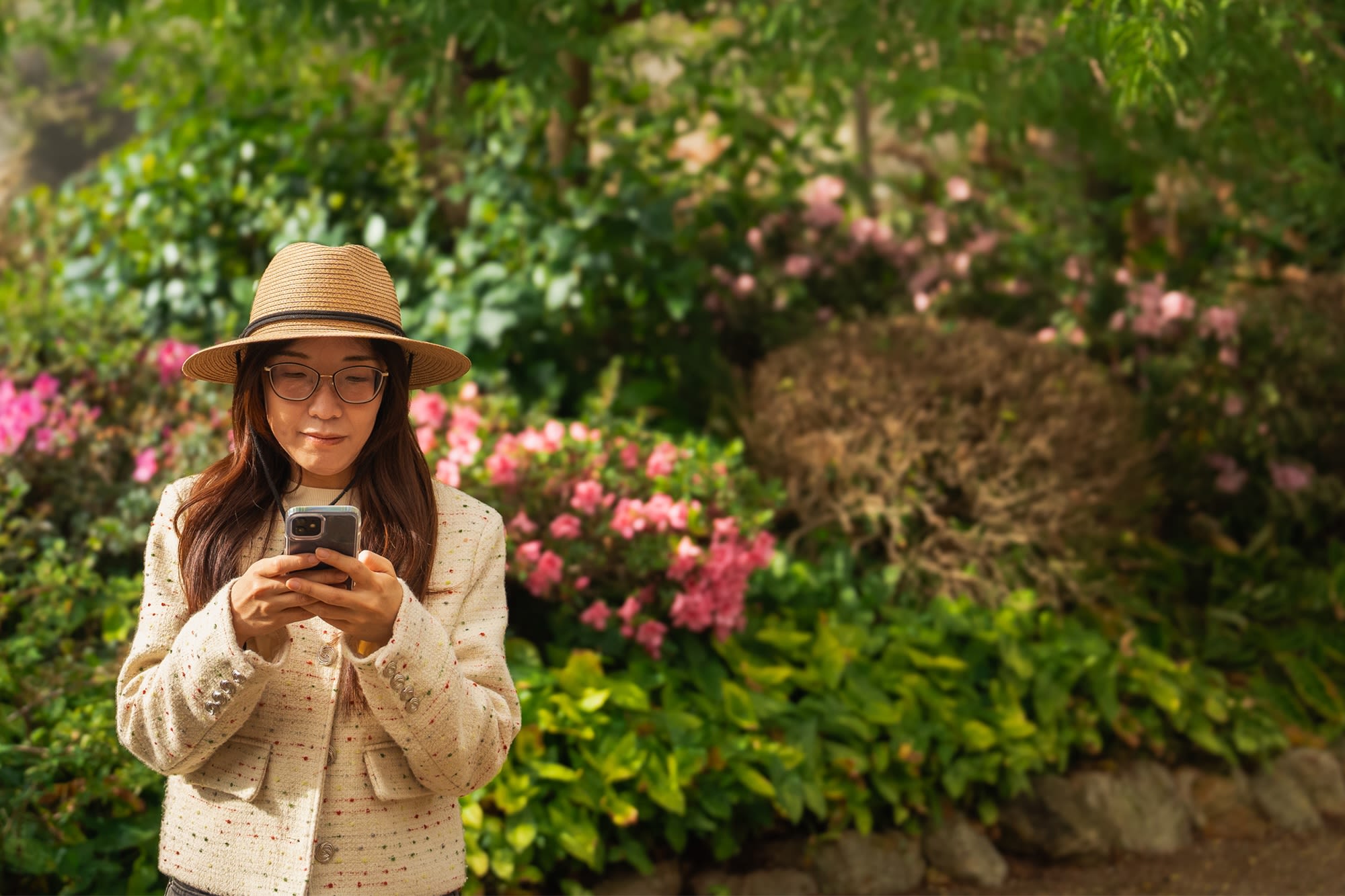
Providing shade to protect Queenland children from skin cancer
The Portable Shade Project continues to be a focus for Cancer Council Queensland. The 2023/2024 round of the Portable Shade Project provided 414 marquees and sun protective walls to not-for-profit sporting and community group organisations across Queensland to protect children from harmful UV rays.
124,000
Across the State, The Portable Shade Project protected over 124,000 children from the harmful effects of UV, whilst they were participating in sporting activities and community groups.
Launching the new Cancer Risk Calculator
Helping Queenslanders lift their cancer prevention game and identify their cancer risks.
Our research shows 1 in 3 cancers can be prevented through modifiable behaviour's. During this reporting period, we continued to focus on reducing cancer risk and finding cancer early by launching Cancer Risk Calculator 2.0.
The calculator asks a series of lifestyle questions, then provides a score for each risk indicating how well people are reducing their cancer risk.
The user is provided with recommendations and information about the risk factors, based on Australian guidelines and leading cancer research, specific to gender, age and the responses provided.
Since it first launched in 2020, 52,269 people have completed the Cancer Risk Calculator.
Our improved version is expected to increase positive changes in modifiable behaviour's and provides us with the data we need to develop more targeted public health interventions.
Cancer Risk Calculator 2.0
More than 52,000 people globally have used the Cancer Risk Calculator to understand where they can lift their cancer prevention game and lower their risk of cancer.
Prevention Highlights
Our cancer prevention and early detection programs focus on informing and raising awareness, providing educational resources, and facilitating access to critical services, including early detection and treatment options.
124,000
Children protected from harmful UV exposure across Queensland.
414
Shade marquees and sun protective walls provided.
52,000
52,000 people have accessed the Cancer Risk Calculator worldwide.
3,720
Rural Queenslanders have accessed Cancer Risk Calculator 2.0.
Support
We invested $11.1 million to support Queenslanders – from the bush to the city – affected by cancer by providing them with the information and services they need to navigate their cancer diagnosis.
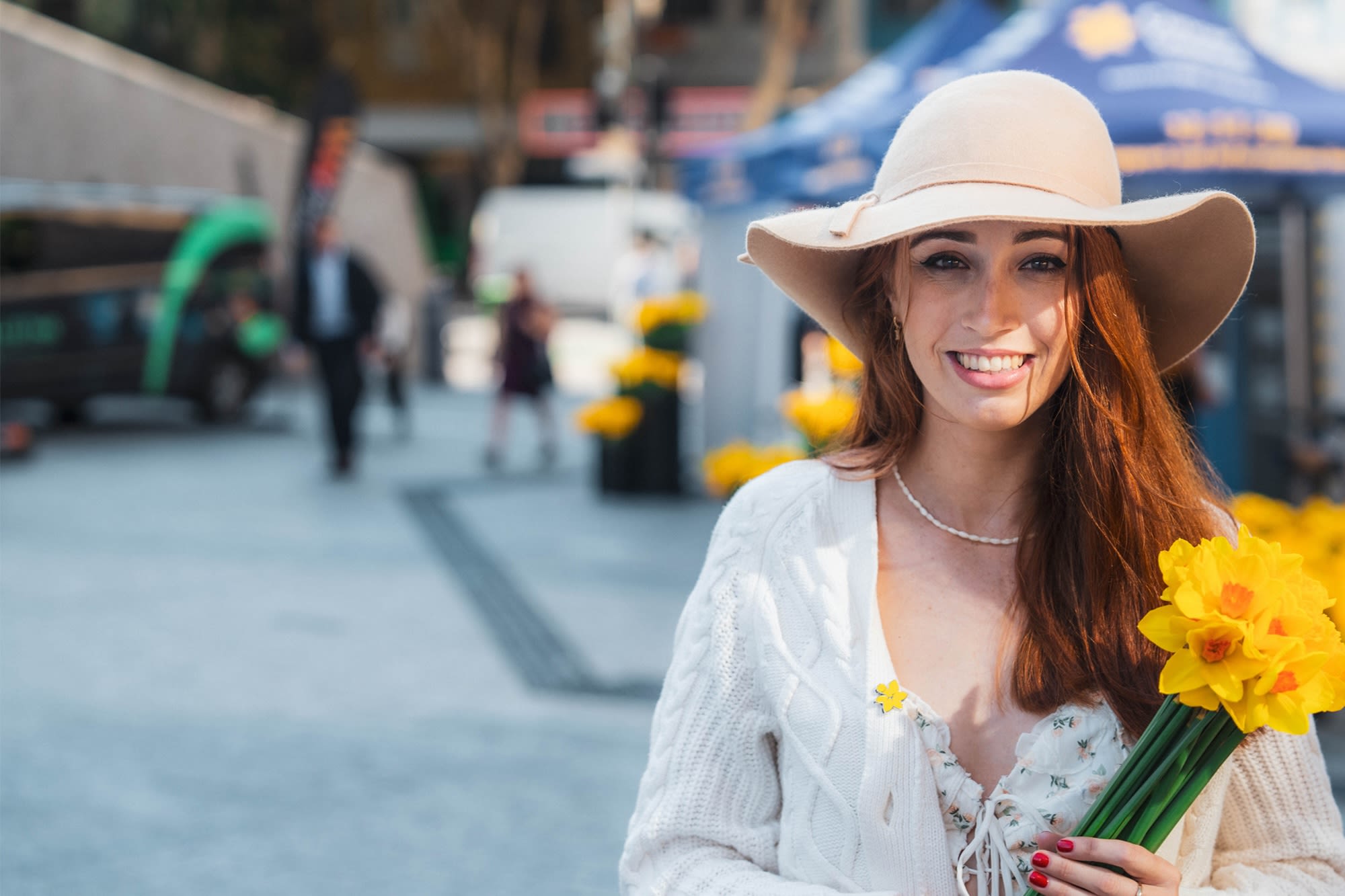
Reclaiming the light
How Cancer Council Queensland’s 13 11 20 team transformed Kodi’s cancer diagnosis.
“I’m a positive person, but it’s hard. Cancer Council helped me maintain optimism and mental stability.”
At her university graduation, Kodi Brown, then 21, found it difficult to celebrate. Diagnosed with cancer just four months prior, she struggled to make future plans.
“I felt like I couldn’t make plans because I didn’t know what was going to happen,” Kodi said.
In her final year of a creative industries degree, Kodi was diagnosed with papillary thyroid cancer after a lump on her neck grew to the size of a golf ball. Following an inconclusive ultrasound, a biopsy confirmed the diagnosis. She underwent surgery, hoping to retain part of her thyroid, but the cancer had spread to her lymph nodes, requiring the full removal of the gland.
Now 27, Kodi recalls how radioactive iodine (RAI) treatment left her feeling isolated.
Due to safety precautions, she was confined to an isolated hospital room. “When staff bring food, you have to stand in the farthest corner while they rush in and out,” she said. After leaving the hospital, the safety measures wore her down. Not being able to touch her dog for weeks took a toll on her. When it became overwhelming, Kodi reached out to Cancer Council’s 13 11 20 support service. Kodi calls that phone call a pivotal moment in her journey. Now in remission, she reflects on the hope she rediscovered.
Launching the Supportive Care Icon pilot
In partnership with Icon Cancer Centre's, we launched the Supportive Care Icon Pilot across five centre's in Queensland.
This pioneering initiative brings together clinicians, treatment facilities, community support services, and lived-experience peers to personalise the cancer journey. Our experts offer support to patients from diagnosis and treatment through to survivorship and end-of-life care.
All volunteers have personal experience with cancer, either as patients or carers. This shared experience enables them to provide empathy, understanding, and hope, while validating the emotions of those undergoing treatment.
The program’s key goals include:
- Assisting people in navigating their cancer diagnosis
- Reducing stress levels
- Offering coping strategies
- Combating feelings of isolation
- Creating a care model that improves patient outcomes during treatment
Support Highlights
Our research and prevention programs focus on informing and raising awareness, providing educational resources, and facilitating access to critical services, including early detection and treatment options.
We continued to advocate for changes to legislation in relation to tobacco control and vaping.
7,824
Contacts to our 13 11 20 Information and Support Line.
882
Referrals to our cancer counselling services.
25,063
Nights of accommodation provided at our Lodges.
1,349
Queenslanders assisted through our financial assistance service.
12,022
Transport to Treatment trips across the State.
Thank you to all our generous supporters who helped us make a meaningful difference in the lives of Queenslanders impacted by cancer this year.
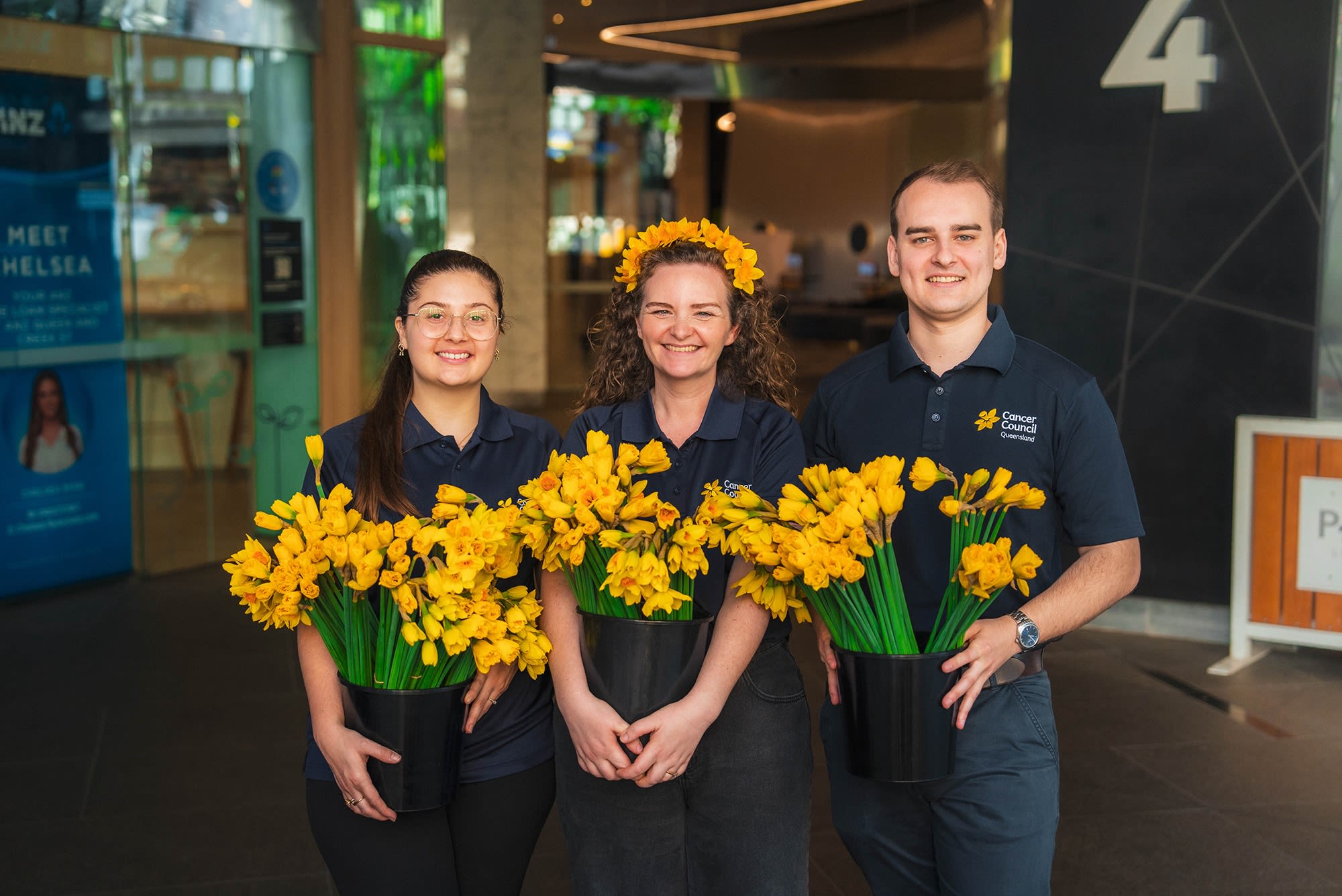

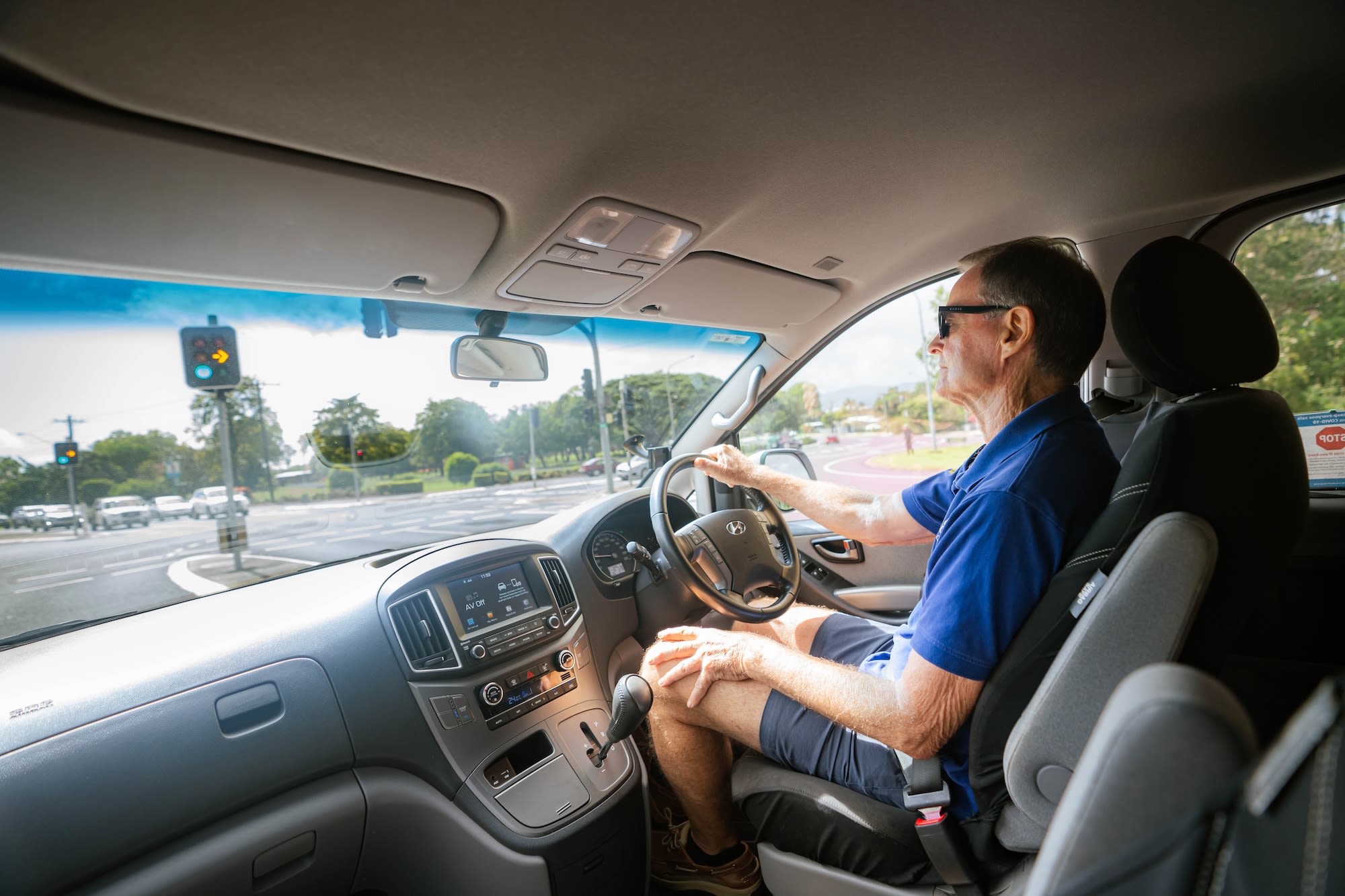
From heartbreak to hope
Alan’s journey of healing through volunteering.
Alan Calder has lived in Cairns for nearly 40 years and shares how his family’s cancer experience shaped his decision to volunteer with Cancer Council Queensland.
Alan’s daughter was diagnosed with brain cancer while studying medicine, which led to frequent trips for specialised care. “When you get the news, you jump on a plane and go to where she’s being treated,” he recalls.
“Just a few hours a week can mean the world to someone going through treatment.”
Living in a regional area, they faced the challenge of navigating a city with no support network.
Despite their efforts, they lost their daughter after 18 months. To honour her memory, Alan began volunteering six months ago, providing transport for cancer patients. “Now I’ve got the time, this is one way of giving back,” he says.
Alan finds deep fulfillment in helping others. “It makes it easier for people to get their treatment,” he explains, noting the transport challenges many face in Cairns.
On a recent trip with a new volunteer driver, every patient expressed gratitude for the service, reinforcing the importance of his work. “That’s all you need to be satisfied in a day’s work,” he says.
Volunteering, for Alan, is more than just driving; it’s about connecting with people facing significant challenges and making their journeys easier. He encourages others to get involved.
We need continued support to lead the way in cancer research, inspire change and make a lasting impact for future generations of Queenslanders.
More about our impact is
available in our full
FY23-24 Report
